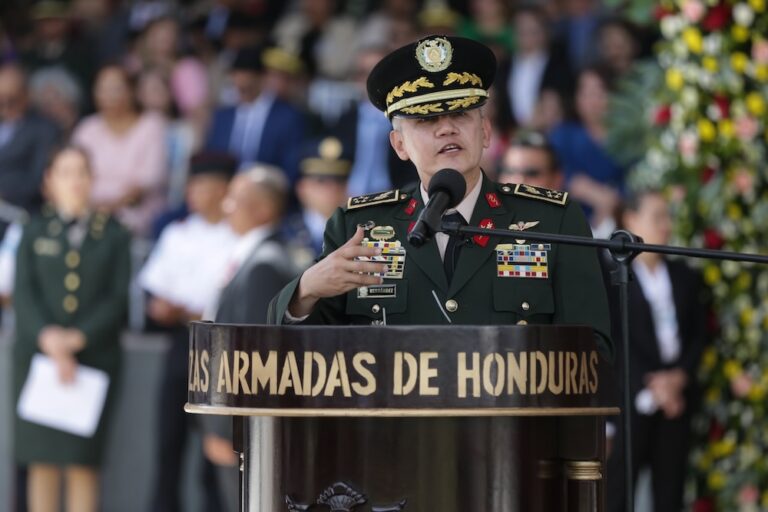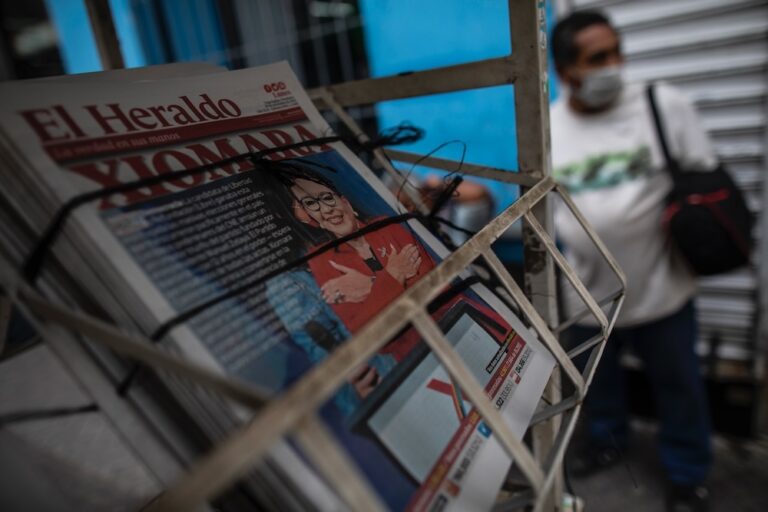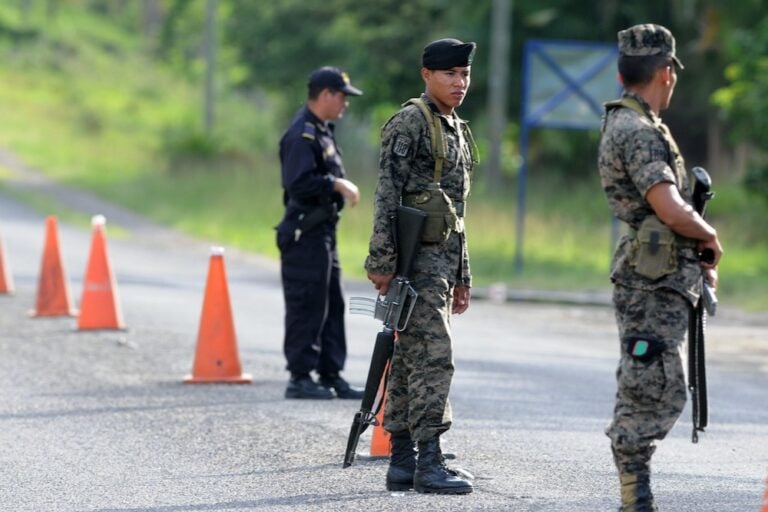(PROBIDAD/IFEX) – On 23 November 2006 Congress approved, on the third and final debate, the Transparency and Access to Public Information Law (Ley de Transparencia y Acceso a la Información Pública), containing 49 articles, with significant improvements on the original version presented on 26 January, according to legislative sources and social organizations that have discussed […]
(PROBIDAD/IFEX) – On 23 November 2006 Congress approved, on the third and final debate, the Transparency and Access to Public Information Law (Ley de Transparencia y Acceso a la Información Pública), containing 49 articles, with significant improvements on the original version presented on 26 January, according to legislative sources and social organizations that have discussed the new law with the Committee for Free Expression (Comité por la Libre Expresión, C-Libre).
“It is an important step forward for Honduran democracy that the Congress members have finally approved a law that will allow citizens to hold their public servants accountable,” said journalist Vilma Gloria Rosales, founder of C-Libre. “As the bill’s original author, Leo Valladares, has told us repeatedly, ‘good is the enemy of best’, but what we have now opens up new opportunities to apply the law and educate the public in its use,” she added.
A key aspect of the law is the establishment of a body called the National Institute for Access to Public Information (Instituto Nacional de Acceso a la Información Pública, IAIP), which is to be decentralized and enjoy operational, decision-making and budgetary independence, and which will have as its mandate the guaranteeing of the implementation of the new law.
After an extensive debate, which began on 22 November and ended on the evening of 23 November, the Congress members reached an agreement on the functional independence of the IAIP, but they were divided on the IAIP’s composition and the process for nominating IAIP commissioners, which was eventually approved in a 85-10 vote.
Liberal Party and most of the National Party legislators united and approved the formation of the IAIP as body with three commissioners, to be elected by a two-third majority of votes, from a list of 10 people nominated for the body by the President, the Attorney General (Procurador), the Commissioner for Human Rights (Comisionado de Derechos Humanos), the National Forum for Convergency (Foro Nacional de Convergencia), which is a body composed of representatives of the government and of civil society that exists to facilitate national dialogue on important issues, and the Accounts Tribunal (Tribunal de Cuentas).
“It seems to me that the weak point of the law is precisely that the Institute lacks the independence needed to be able to made the decisions it has to,” said Jorge Ramón Hernández Alcerro, a Congress representative from the National Party who voted against the article of the law that included the oft-questioned Accounts Tribunal as one of the five bodies that will now be able nominate people for consideration as Institute commissioners.
“In general, the rest of the Law will be a significant step forward, even just with the information that the institutions with special obligations under the law (Instituciones Obligadas de la Ley) will now have to publish without being asked to do so by citizens, but it’s a pity that we have lost a truly historic opportunity to provide Honduras with an independent Institute,” he added.
Article 13 of the law broadens the automatically released official information that Obligated Institutions (Instituciones Obligadas), including the three branches of the State, the municipalities, non-governmental organisations that spend public monies, private corporations and foundations, must now publish.
“Legislation thought perfect by international standards would be useless if the authorities were not willing to apply the content of the legislation,” said Representative Lizzie Flores, who directed two day-long final debate on the law.
Flores, who is also vice-chairperson of the Honduran House of Representatives (Cámara), named an editing committee (Commission de Estilo) composed of Representatives Edmundo Orellana, from the ruling Liberal Party, Juan Orlando Hernández, from the National Party, and Toribio Aguilera, from the Innovation and Unity Party (Partido Innovación y Unidad, PINU) to finalise the wording of the Transparency Law.
“This law didn’t come out exactly as we had wished, but we hope that when the 10 candidates are proposed by the five different institutions, we representatives to Congress will react with the higher interests of the country in mind and name three commissioners who don’t represent political or economic groups about which questions have arisen,” emphasized Rep. Aguilera.
The new law will come into effect 20 days after its publication in the “Official Gazette” (“Diario Oficial La Gaceta”), but its application will only begin a year after that, in order to allow the institutions obliged to respect it to adapt their organizations and functioning to the law.
The social organisations that have promoted the Transparency Law for over three years will perform a very thorough evaluation of the text of the approved law before making their official position on it public.
This alert was prepared by PROBIDAD with information provided by the C-Libre.


